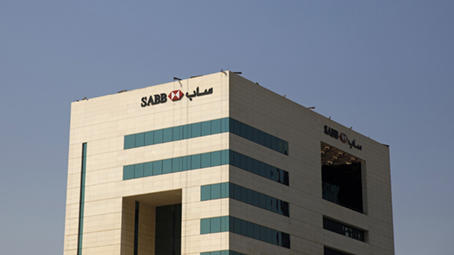The Banker’s top Islamic GCC Banks ranking

The Gulf Co-operation Council region is powering growth in Islamic finance, as shown by The Banker’s latest ranking, while consolidation is spawning a new generation of mega-lenders.
The Gulf Co-operation Council (GCC) continues to be the primary engine of growth for the global Islamic finance sector, even as demand for sharia-compliant banking and financing increases around the world. The region’s lenders registered a 10.9% increase in sharia-compliant assets during 2019, compared with a global rise of just 8.2%.
Early indications suggest this trend has not been significantly impacted by the coronavirus pandemic, despite a sharp recession across the region (due to lower oil prices and coronavirus restrictions) affecting lenders’ profitability in 2020.
Lenders in Saudi Arabia — the region’s largest Islamic finance market with 47.2% of sharia-compliant assets — continued to benefit in 2020 from the booming local mortgage market. Banks across the wider region, meanwhile, are benefiting from rising sukuk issuances, as governments continue to tap capital markets to fund budget deficits. Sukuk issuances across the GCC rose by 35% to $39.3bn in 2020, according to data from the Kuwait Financial Centre, while S&P Global Ratings forecasts further increases this year.
The 2021 edition of The Banker’s Top Islamic GCC Banks ranking illustrates the resilience of the sector just before the pandemic hit. All but two of the region’s top 20 lenders experienced rises in both their sharia-compliant assets and their profitability, with capitalisation at sound levels across the sector. The ranking once again highlights how the ongoing trend of mergers and acquisitions among banks is creating a growing pool of mega-lenders that are dominating the region in both the Islamic and conventional banking sectors.
Al Rajhi reigns
Saudi Arabia’s Al Rajhi tops the ranking for the third consecutive year, having become the first lender worldwide to hold more than $100bn of sharia-compliant assets. The bank reported a healthy 10% growth in pre-tax profits for 2019, and led the ranking in return on assets and return on capital for major banks (both conventional and Islamic) across the region.
Al Rajhi — Saudi Arabia’s second-largest lender by total assets after National Commercial Bank (NCB) — continues to reap the benefits of the government’s drive to increase home ownership to 70% of the population by 2030, up from 50% in 2018. Mortgage retail loans nationally increased by 41.4% to SR198bn ($52.8bn) in 2019, with Al Rajhi’s share of the market rising to 32.3% at the end of the year, from 27.9% at end-2018.
Saudi lenders, which account for 10 of the GCC’s largest 15 Islamic banks, saw their sharia-compliant asset bases increase overall by 12.5% to $393.3bn in 2019. In June 2019, Saudi British Bank (SABB) finalised its acquisition of domestic rival Alawwal. It leads the pack with a 43.8% rise, with Riyad Bank (19.5%) and Bank Al Jazira (18.6%) posting the largest organic growth of the year in the country.
Sharia-compliant asset growth was more pronounced among conventional lenders, compared with among Islamic-only lenders. Conventional banks saw a 16% rise in Islamic assets during 2019, led by SABB, Riyad Bank and Samba Financial Group, compared with just 8.8% for Islamic banks. Such a trend is also noticeable on the regional level, with Islamic windows of conventional lenders registering a 16.8% growth in sharia-compliant assets, compared with 8.2% for Islamic-only institutions.
Qatar bounces back
Meanwhile, Qatari Islamic lenders registered the most impressive growth in the region, with a 17.95% increase in sharia-compliant assets during 2019. This compares with an 11.1% rise in total assets across all lenders in the country over the same period, according to figures from The Banker Database.
Qatar’s Islamic banking sector benefited from renewed confidence in the country among international investors, as the impact of the Saudi-led boycott — formally lifted in January 2021 — began to subside. Qatar’s Islamic lenders experienced an 83.6% increase in international deposits during the first half of 2019, according to data from the Qatar Financial Centre.
Leading the charge was Barwa Bank, which completed the country’s first-ever bank merger deal when it tied up with International Bank of Qatar (IBQ) in 2019. The acquisition saw Barwa’s sharia-compliant asset base increase by 73.9% for the year, making it the country’s third-largest Islamic lender. The Barwa-IBQ deal is set to be followed by the acquisition by Masraf Al Rayyan, the country’s second-largest Islamic lender, of Al Khalij Commercial Bank, after an announcement by the two banks in January 2021.
UAE lenders falter
Islamic banks in the United Arab Emirates (UAE), the region’s second-largest Islamic finance market, had a much quieter year. Sharia-compliant assets grew by just 2.4% in 2019, compared with a 17.6% rise in assets for the banking sector as a whole.
The country’s fourth-largest Islamic lender, Noor Bank, acted as a drag on averages. The bank, acquired by leading Islamic lender Dubai Islamic Bank (DIB) in January 2020, saw its sharia-compliant assets drop by 6.6%; investments in sukuk and equity funds dropped by 35%, and investments in Islamic finance instruments by 3.7%.
At the other end of the spectrum, Abu Dhabi Commercial Bank saw its sharia-compliant asset base increase by 119.7% following the completion of its three-way merger with Union National Bank and Al Hilal Bank in May 2019. Meanwhile, the country’s largest lender by total assets, First Abu Dhabi Bank, saw a 1.6% drop in its sharia-compliant assets, even as its overall asset base increased by 10.5%.
DIB itself reported a growth of just 3.6% in its asset base for 2019, the lowest percentage of the region’s five largest Islamic lenders. While the bank fell to fourth place in this year’s ranking, from second in 2020, its acquisition of Noor Bank is likely to see it regain ground in next year’s ranking.
Acquisitions on the rise
The DIB-Noor acquisition is just one of several deals that continue to reshape the banking landscape in the region, creating a new series of mega-lenders in both the conventional and the Islamic areas.
Of this year’s top 10 Islamic lenders, six have publicly announced merger talks with another bank since early 2019, with three deals completed since June 2019. Such a trend is likely to continue into 2021, as pressures from the pandemic and the emergence of a new class of megabank push smaller players into alliances to boost their competitive chances.
Of this year’s top 10 Islamic lenders, six have publicly announced merger talks with another bank since early 2019
Kuwait Finance House, whose proposed acquisition of Ahli United Bank has been delayed by the pandemic, was the best performer in terms of percentage growth among the region’s Islamic lenders. Its sharia-compliant asset base grew by 9.1% during the year, helping it regain second place in the rankings.
Lenders in Kuwait were second only to their Qatari peers in terms of asset gains in this year’s rankings. KFH, the first and by far the largest Islamic lender in the country, was the only bank not to record a rise of more than 20%. Sharia-compliant assets rose by 15.2%, compared with just 7% across all asset classes.
NCB, which ended merger talks with domestic rival Riyad Bank in December 2019, moved from fourth place to third in the 2021 rankings with a 7.9% rise in its sharia-compliant asset base. The Saudi banking giant is set for further gains in the near future however, after agreeing a merger with Samba Financial Group in January 2021.
Such merger trends are set to result in a greater concentration in the Islamic finance sector, with a smaller number of large players across the GCC. Smaller lenders will need to forge alliances among themselves to better compete with the regional mega-lenders.



